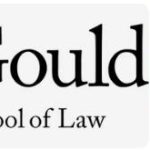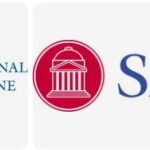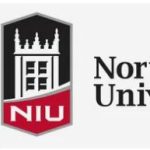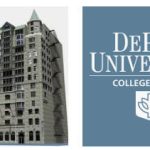Southern Illinois University—Carbondale School of Law was established in 1976, and was the first public law school in the state of Illinois. The school was founded with the intention of providing legal education to students from all walks of life, regardless of their financial means or background. The school offers both full-time and part-time programs, as well as a variety of degree options. It is accredited by the American Bar Association, and its faculty consists of experienced professionals who have received numerous awards and honors for their work. The school has also established strong ties with local businesses, government agencies, and other universities. In addition to its academic offerings, SIU-Carbondale School of Law is known for its commitment to public service and pro bono work. Each year, it sponsors a variety of community events such as mock trials and legal clinics that provide free legal advice to those in need. The school also provides internship opportunities for students interested in pursuing a career in law or public policy. Over the years, SIU-Carbondale School of Law has become one of the most respected institutions in Southern Illinois due to its commitment to excellence in legal education and community service.
Southern Illinois University–Carbondale School of Law is located in the state of Illinois. As one of the leading law programs, Southern Illinois University–Carbondale School of Law has a high average LSAT score of 151-157 when recruiting new students. As a return, the median starting salary for law graduates reaches $50,000 per year. See the following table for detailed admissions information and career profiles of Southern Illinois University–Carbondale School of Law.
Admissions: Southern Illinois University–Carbondale
Southern Illinois University–Carbondale School of Law is an accredited law school located in southern Illinois that offers a Juris Doctor degree. The school’s admissions process is highly selective and the average GPA of admitted students is 3.5. In terms of LSAT scores, the median score for the middle 50% of accepted students is 154-159, with 25th percentile being 151 and 75th percentile being 158. The acceptance rate for the school is 37%. In addition to academic qualifications, the admissions committee also takes into account personal qualities such as leadership, community involvement, and character when making admission decisions. Furthermore, applicants must submit a personal statement that outlines their goals and motivation for attending law school.
| Fall 2019 Admissions and Enrollment Statistics | |
|---|---|
| Total number of full- and part-time applicants | 753 |
| Total number of full- and part-time acceptances | 362 |
| Overall acceptance rate | 48.1% |
| Total number of full- and part-time first-year students enrolled | 137 |
| Number of full-time program applicants | 753 |
| Number of full-time program acceptances | 362 |
| Full-time acceptance rate | 48.1% |
| Number of first-year full-time students enrolled | 137 |
| Number of part-time program applicants | N/A |
| Number of part-time program acceptances | N/A |
| Part-time acceptance rate | N/A |
| Number of first-year part-time students enrolled | N/A |
| Fall 2019 GPA and LSAT Scores | |
| 25th-75th percentile GPA scores for all students | 3.01-3.52 |
| 25th-75th percentile LSAT scores for all students | 151-157 |
| 25th-75th percentile undergraduate GPA for full-time students | 3.01-3.52 |
| 25th-75th percentile LSAT scores for full-time students | 151-157 |
| 25th-75th percentile undergraduate GPA for part-time students | N/A |
| 25th-75th percentile LSAT scores for part-time students | N/A |
Careers: Southern Illinois University–Carbondale
| Bar Statistics (Winter and Summer 2018 administrations) | |
|---|---|
| State where the greatest number of first-time test takers took the bar | IL |
| School’s bar passage rate for first-time test takers | 94.7% |
| Statewide bar passage rate for first-time test takers | 90.8% |
| Class of 2018 Graduates | |
| Total graduates | 107 |
| Graduates employed at graduation | N/A |
| Graduates known to be employed nine months after graduation | 84.9% |
| Starting Salaries of 2018 Graduates Employed Full-time | |
| 25th percentile private sector starting salary | $40,000 |
| Median private sector starting salary | $50,000 |
| 75th percentile private sector starting salary | $60,000 |
| Percent in the private sector who reported salary information | 61% |
| Median public service starting salary | $42,000 |
| Areas of Legal Practice (Class of 2018) | |
| Percent employed in academia | 3.5% |
| Percent employed in business and industry | 14.0% |
| Percent employed in government | 26.7% |
| Percent employed in all judicial clerkships | 2.3% |
| Percent employed in law firms | 46.5% |
| Percent employed in public interest | 7.0% |
| Percent employed in an unknown field | 0.0% |
| Percent employed in a judicial clerkship by an Article III federal judge | 2.3% |
| 2018 Graduates Employment Location | |
| Graduates employed in-state | 67% |
| Graduates employed in foreign countries | 0% |
| Number of states where graduates are employed | 14 |
| New England (CT, ME, MA, NH, RI, VT) | 0.0% |
| Middle Atlantic (NY, NJ, PA) | 1.2% |
| East North Central (IL, IN, MI, OH, WI) | 72.1% |
| West North Central (IA, KS, MN, MO, NE, ND, SD) | 10.5% |
| South Atlantic (DE, DC, FL, GA, MD, NC, SC, VA, WV) | 6.9% |
| East South Central (AL, KY, MS, TN) | 1.2% |
| West South Central (AR, LA, OK, TX) | 0.0% |
| Pacific (AK, CA, HI, OR, WA) | 1.2% |
| Mountain (AZ, CO, ID, MT, NV, NM, UT, WY) | 4.6% |
| Employment location unknown | 2.3% |
| Career Services | |
| (Data appear as originally submitted by this school) | |
| Career services operations | Comprehensive services including individual counseling, extensive topical programming, job development and information distribution including an online vacancy bulletin, full reciprocity services, an annual law career fair, and employer outreach and facilitation. |
| Job Type | |
| Bar admission required or anticipated (e.g., attorney and corporate counsel positions, law clerks, judicial clerks) | 81.0% |
| J.D. preferred, law degree enhances position (e.g., corporate contracts administrator, alternative dispute resolution specialist, government regulatory analyst, FBI special agent) | 3.0% |
| Professional/other (jobs that require professional skills or training but for which a J.D. is neither preferred nor particularly applicable; e.g., accountant, teacher, business manager, nurse) | 9.0% |
| Nonprofessional/other (job that does not require any professional skills or training or is taken on a temporary basis and not viewed as part of a career path) | 6.0% |









